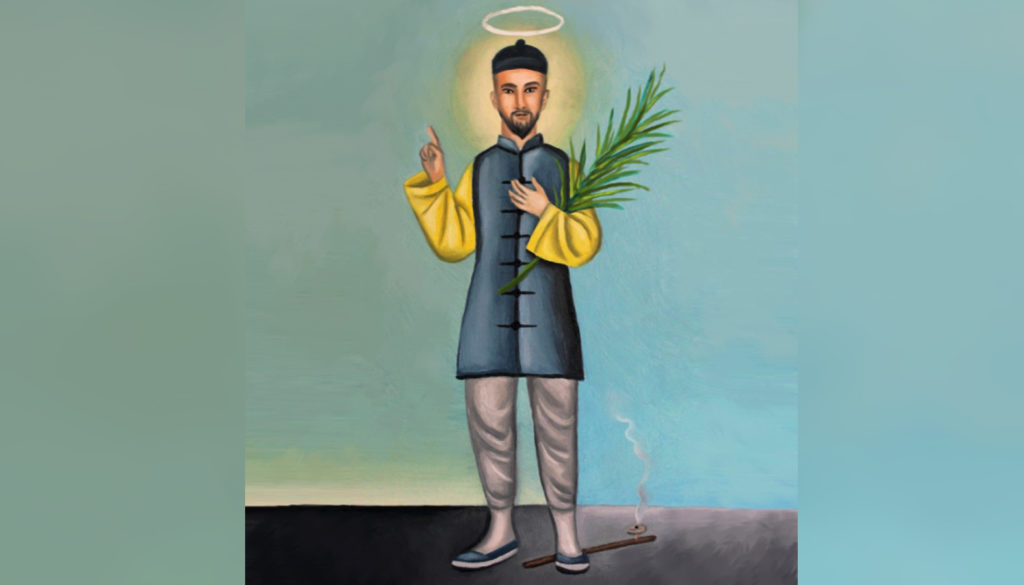When I was young, if you were three minutes late for Mass, you were standing on the side or back of the church. When it came time for Communion, only about half the people in attendance left their pews to approach the altar.
Today, with churches demonstrably less populated, almost no one remains in the pew when it is time for distribution of the Real Presence. Since there are probably 47 reasons for this change and 147 interpretations of such, I will forgo adding to it. Suffice it to say, we have a conundrum: a statistical increase in the reception of the Blessed Sacrament simultaneously with a decrease in the faithful’s understanding of what it is. Things are looking up from the dire 2019 Pew Research poll that showed more than 50% of Catholics not believing in the Real Presence. A more recent 2023 poll shows cause for hope — as if that was not always the proper response.
We just celebrated the feast of Corpus Christi with Eucharistic processions held across the Archdiocese of Los Angeles, and so, whatever poll one wants to give more weight to, I think it is safe for all of us to assume the Real Presence is here to stay. But in order to keep our spiritual muscles toned, it is wise to seek out the wisdom God has imparted on his Church through the vehicle of 2,000 years’ worth of saints.
If we ever get too casual about receiving the Blessed Sacrament, if we ever get to taking it for granted and walking up to the altar with a sense of rote or going through the motions, we have plenty of exercises at our disposal to avoid indifference.
One of those exercises came to my tangled mind upon hearing about a particular saint of the Church for the first time in my life. Since the Church herself does not know how many saints there are — and according to the sources I looked up, neither does anybody else — if St. Mark Ji Tian Xiang slipped past you, don’t feel bad. It happens to the best of us.
This saint, beatified by Pope Pius XII in 1946 and canonized by another saint, St. Pope John Paul II in 2000, may have been a man of the 19th century, but he is a saint for our times, especially when there is a crisis of belief in the Real Presence.
There is a statue of Ji that has the saint holding an opium pipe as if he were asking God to take it out of his hands. He was praying for that. A layman and a physician who took care of the poor, Ji was also addicted to opium. For decades he tried to stop and for decades he failed. He confessed his sin regularly and soon his priest refused to bestow absolution because of his chronic sinfulness.
And in all those ensuing years, this saint always went to Mass. Yet, at every liturgy, when it was time to approach the altar and receive the body, blood, soul, and divinity of the Lord, Ji stayed in his pew.
There are better-known saints such as St. Cyril of Jerusalem, St. Thomas Aquinas, and St. Teresa of Ávila who led remarkable lives of devotion to the Eucharist. But I cannot think of a more worthy example of respect for the Eucharist than Ji. He understood that without absolution, he was truly “not worthy” for the Lord to “come under his roof.”
We know a lot more about the power of addiction now. I work at a shelter where I come into contact with this dragon on a daily basis. When you see it up close and personal, you become aware of the power of addiction and how even those in recovery must stay on guard every day. We also know things the priest in Ji’s confessional could not know in the middle part of the 19th century: that drugs like opium change the chemical balance in the brain and make resisting the drug all the more difficult.
Addiction was a demon Ji could not overcome, but he still made regular confession and Mass attendance the cornerstones of his sacramental life. Though God did not take that opium pipe out of his hands, he did give this saintly man the grace to die a martyr. He was killed during the Boxer Rebellion in China when all he had to do was renounce God and his Church. He refused.
He should be the patron saint of the counterintuitive. He may have denied himself the Lord in the Eucharist, but I am confident that all of those spiritual communions he took part in may not have saved him from addiction, but did lead to entry into the Divine Presence.

